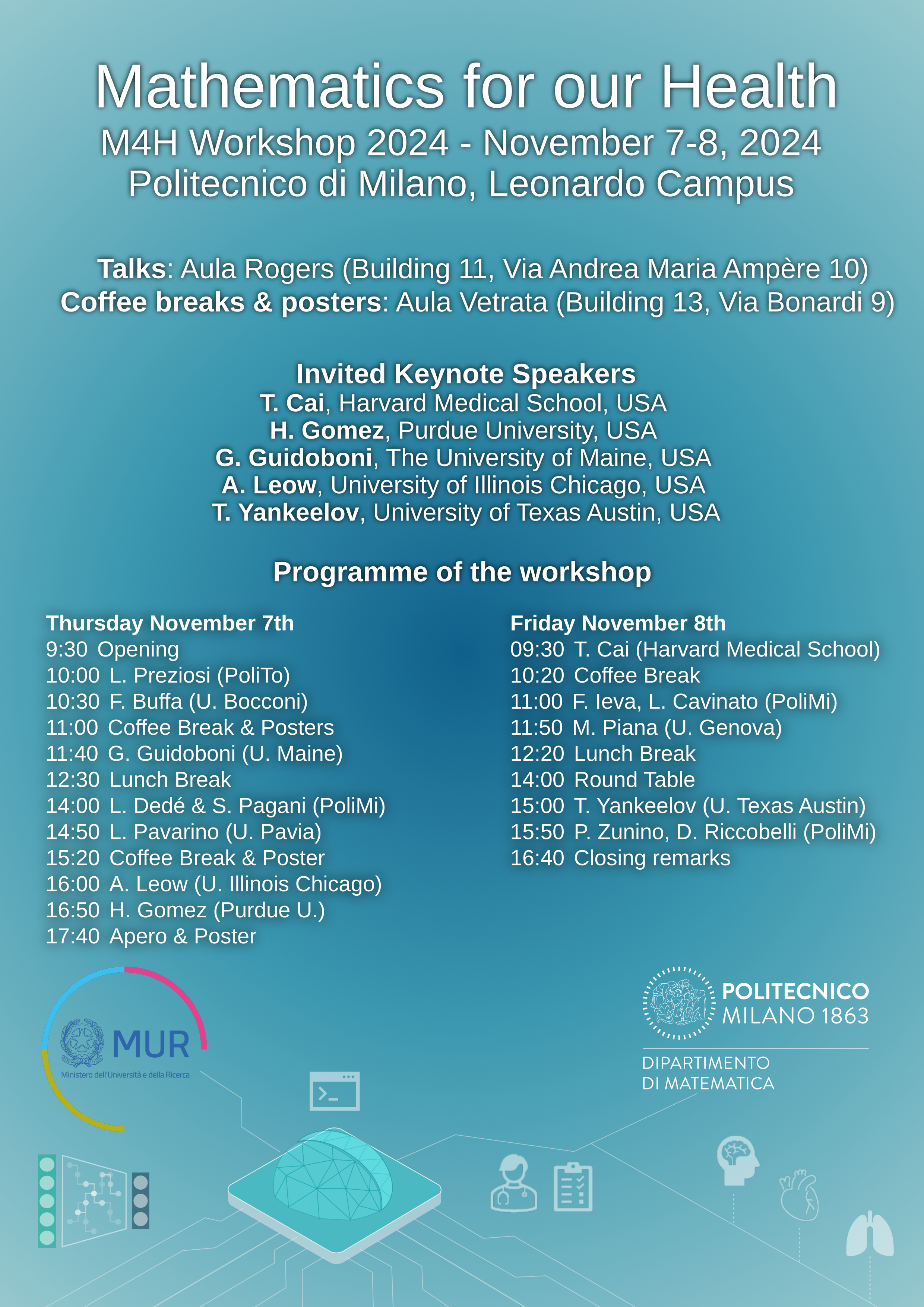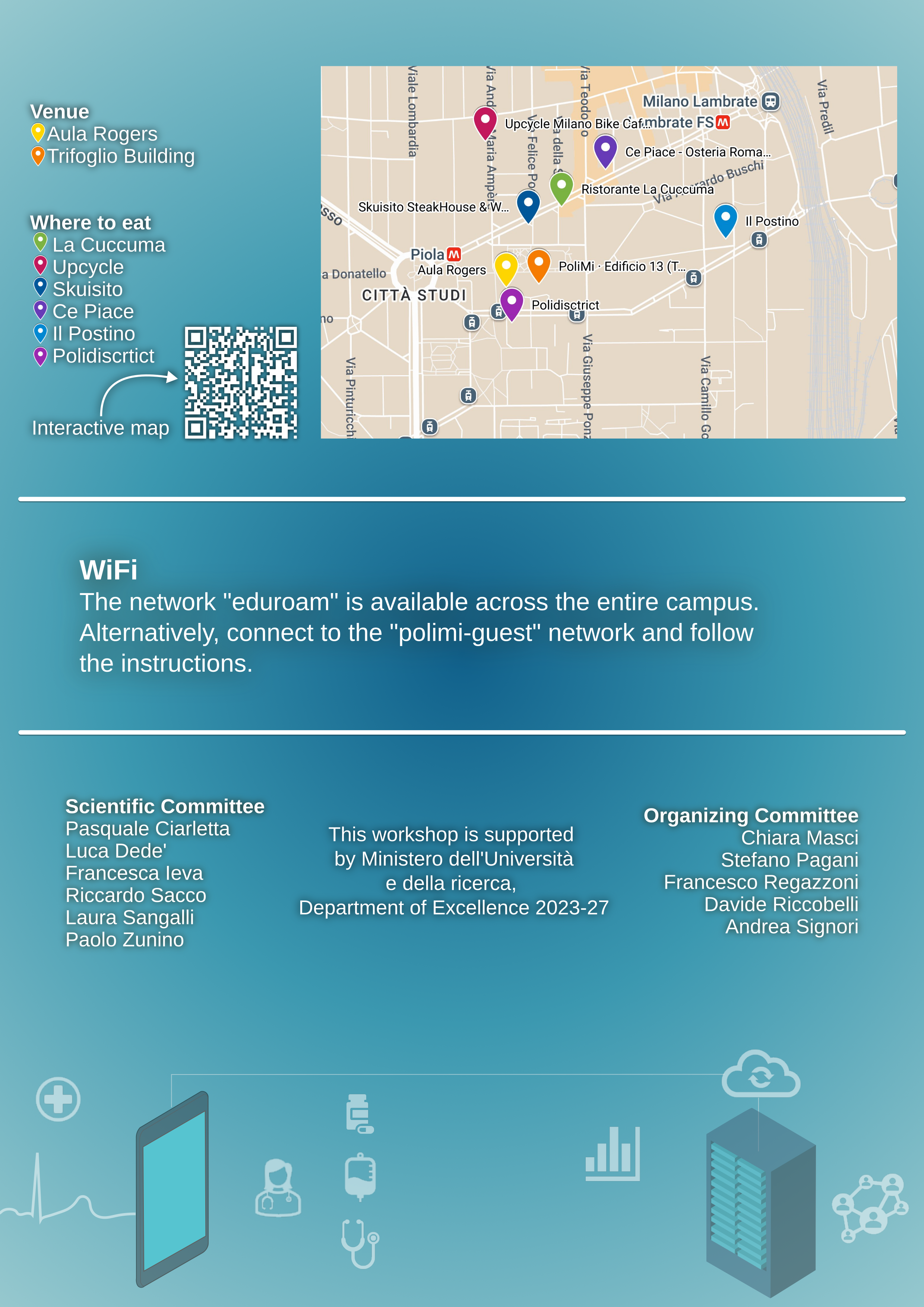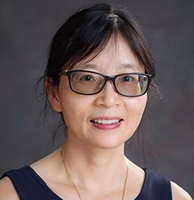
Tianxi Cai
Professor of Biomedical Informatics,
Harvard Medical School, USA
Tianxi Cai is the John Rock Professor of Population and Translational Data Science at Harvard Chan School of public health and a Professor of Biomedical Informatics at Harvard medical school. Dr. Cai co-directs the VERITY Bioinformatics Core at Brigham and Women’s Hospital. She also directs the Big Data Analytics Core at Harvard Medical School, providing statistical and biomedical informatics support to both Harvard research community and external research groups.Dr. Cai’s research team has successfully developed statistical and informatics tools for analyzing complex big biomedical data from large scale studies including multi-institutional electronic health records, cohort studies, disease registries, genomic studies, and randomized clinical trials.
Title: Crowdsourcing with Multi-institutional EHR to Improve Reliability of Real World Evidence - Opportunities and Challenges
Abstract: The wide adoption of electronic health records (EHR) systems has led to the availability of large clinical datasets available for discovery research. EHR data, linked with bio-repository, is a valuable new source for deriving real-word, data-driven prediction models of disease risk and progression. Yet, they also bring analytical difficulties especially when aiming to leverage multi-institutional EHR data. Synthesizing information across healthcare systems is challenging due to heterogeneity and privacy. Statistical challenges also arise due to high dimensionality in the feature space. In this talk, I’ll discuss analytical approaches for mining EHR data to improve the reliability and generalizability of real world evidence generated from the analyses. These methods will be illustrated using EHR data from multiple institutions including Mass General Brigham and Veteran Health Administration.
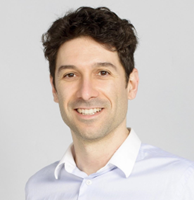
Hector Gomez
Professor, School of Mechanical Engineering,
Purdue University, USA
Hector Gomez is a distinguished faculty member at Purdue University, serving as a Professor in the School of Mechanical Engineering and by courtesy in the Weldon School of Biomedical Engineering. His research interests lie in computational engineering and medicine. Prof. Gomez has received numerous accolades, including the USACM Fellow Award (2023), the Gallagher Young Investigator Award (2017), and the Princess of Girona Scientific Research Award (2017). He has also been recognized by the MIT Technology Review as an Innovator under 35 (2014) and has received an ERC Starting Grant (2012). Prof. Gomez completed his PhD in Civil Engineering, receiving multiple awards for his outstanding thesis work.
Title: Poromechanical modeling of subcutaneous injection of monoclonal antibodies
Abstract: The discovery of monoclonal antibodies (mAbs) opened the possibility to tailor-make an antibody that targets potentially any disease. However, it took decades for mAbs to come into their own as medicine because of significant obstacles that had to be overcome, including the body’s own antibodies attacking the mAb, side effects, and efficiently delivering the mAb to the disease site. Despite significant progress, the latter obstacle remains a major bottleneck. mAbs are large proteins that become unstable upon oral ingestion. They cannot cross cell membranes or move through the body easily like small drug molecules can. The most standard administration route for mAbs is intravenous infusion, but there is a strong interest in delivery via subcutaneous injection because it is preferred by patients and caregivers. However, delivery of mAbs by subcutaneous injection is very inefficient — 20 to 40 percent of the drug does not get out of the injection site. Worse, that number can vary from patient to patient and injection to injection. The problem is exacerbated when we inject large volumes, which is highly desirable from a clinical standpoint. To better understand the bottlenecks in subcutaneous injection of mAbs, we developed a high-fidelity multiphysics model. From a mechanical standpoint, large-volume injections of high-viscosity drugs can produce elevated fluid pressures within the interstitial space, leading to large fluid velocities around the needle tip and potential tissue hydraulic fracturing. Mechanics is strongly coupled through transport by advection, diffusion and electromigration. In this talk, I will show how our high-fidelity multiphysics model also lays a solid foundation for advancing biomedical applications through computational modeling, contributing to improved drug delivery strategies and patient outcomes.
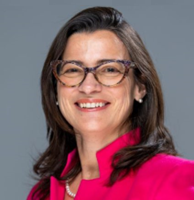
Giovanna Guidoboni
Professor, Dean of the Maine College of Engineering and Computing,
The University of Maine, USA
Giovanna Guidoboni graduated from the University of Ferrara (Italy) with a PhD in Mathematics and an MS in Engineering of Materials. Before joining the University of Maine in 2023, Giovanna Guidoboni served on the faculty of the University of Houston (TX), Indiana University Purdue University Indianapolis (IN), Université de Strasbourg (France), and the University of Missouri (MO).
Giovanna Guidoboni's research focuses on mathematical modeling and data science applied to engineering and life sciences and she has active collaborations in modeling ocular blood flow and risk factors associated with ocular diseases, function of the lower urinary tract, and noninvasive health monitoring. Giovanna Guidoboni's research has been funded by the National Science Foundation, the National Institute of Health, and the European Commission. Giovanna Guidoboni is a member of the European Academy of Sciences and Arts, co-founder of Modeling and Artificial Intelligence in Ophthalmology.
Title: From the Blackboard to the Clinic: combining mechanism-driven and data-driven models for personalized medicine
Abstract: Mechanism-driven models are based on the principles of physics and physiology and allow for identification of cause-to-effect relationships among interplaying factors in a complex system. While invaluable for causality, mechanism-driven models are often based on simplifying assumptions to make them tractable for analysis and simulation; however, this often brings into question their relevance beyond theoretical explorations.
Data-driven models aim at extracting information and knowledge from data. These approaches are naturally interdisciplinary, as it bridges fundamental techniques of data analysis, typically developed by mathematicians, statisticians and computer scientists, with the needs of actionable insights that are specific to the particular application domain.
The combination of mechanism-driven and data-driven models allows us to harness the advantages of both approaches, as mechanism-driven models excel at interpretability but suffer from a lack of scalability, while data-driven models are excellent at scale but suffer in terms of generalizability and insights for hypothesis generation. This combined, integrative approach represents the pillar of the interdisciplinary approach to data science that will be discussed in this talk, with applications spanning from glaucoma research to cardiovascular monitoring and physiology of the lower urinary tract (LUT).
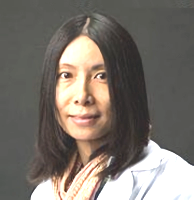
Alex Leow
Professor in Psychiatry and Bioengineering,
University of Illinois Chicago, USA
Alex Leow is a tenured Professor in the Departments of Psychiatry, Biomedical Engineering, and Computer Science at the University of Illinois at Chicago (UIC) and an attending physician at the University of Illinois Hospital.
With both a doctoral degree in applied mathematics and a medical board certification in adult psychiatry, Dr. Leow's research efforts have included both the development of computational methods and their translational applications in neurological and psychiatric conditions.
As a co-founder of the Computational Neuroimaging and Connected Technology (CoNeCt) lab, Dr. Leow is the principal investigator of the BiAffect study, the first scientific study that seeks to turn smartphones into “brain fitness trackers”, by leveraging passively-collected keyboard metadata collected from the virtual keyboard of a smartphone. Dr. Leow and her research have been extensively featured in the news, including Chicago Tribune, Chicago Tonight, Forbes, the Wall Street Journal, the Associated Press news, the Rolling Stone, IEEE EMBS society, WBEZ Public Radio, Block Club Chicago, NPR All Things Considered, WCIU/CW26, FreeThink, and TEDxChicago.
Title: Mathematics for Health (of the Brain & the Mind)
Abstract: In this talk I will “connect the dots looking backwards” by sharing things I have learned over the years, as a mathematician-turned-psychiatrist-turned-technologist, in my attempts to computationally model the brain and the mind.
Partly inspired by recent events in AI and neuroscience research, I will first make the observation that while the biology of the brain is often normally distributed, the product of the mind appears anything but. In fact, I argue that human ideas and beliefs will always exhibit a scale-free property, and thus scale much easier and faster than human biology. However, this argument also implies that we can borrow mathematics first developed in statistical physics (maximum entropy principle, Boltzmann distribution, etc.) to model the dynamics of the brain, allowing for an intuitive connection to modern Hopfield neural networks (Nobel Prize in physics 2024). Last, (time permitting) I will discuss the way recent advances in mobile technology will revolutionize brain research by enabling us to unobtrusively quantify the brain and the mind in the wild. To illustrate, I will introduce our work that turns smartphones into 'fitness trackers' for the brain.
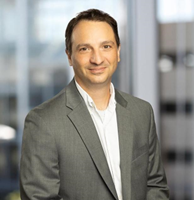
Thomas Yankeelov
Professor, Director of Center for Computational Oncology, Biomedical Engineering,
University of Texas Austin, USA
Tom Yankeelov received an MA in Applied Mathematics and an MS in Physics from Indiana University, before completing the PhD in Biomedical Engineering at SUNY@Stony Brook. He completed his post-doc at the Vanderbilt University Institute of Imaging Science and climbed the ranks to Full Professor in 2010. He then joined the faculty at The University of Texas at Austin in 2016 where he is now the Moncrief Chair of Computational Oncology and Professor of Biomedical Engineering, Diagnostic Medicine, and Oncology. Dr. Yankeelov is the founding Director of the Center for Computational Oncology, and also serves as co-Director for the Quantitative Oncology Research Program and Director of Cancer Imaging Research within the Livestrong Cancer Institutes at UT Austin. He is also an Adjunct Professor of Imaging Physics at MD Anderson Cancer Center. The overall goal of Dr. Yankeelov's research is to develop tumor forecasting methods by integrating advanced imaging technologies with predictive models of tumor growth to optimize therapy on a patient-specific basis. This is accomplished by dividing his efforts into approximately equal parts mathematical modeling, pre-clinical development, and implementation in clinical trials.
Title: Digital twins cancer patients who are not average
Abstract: Our team focuses on developing practical digital twins built on biology-based, mathematical models to predict tumor growth and treatment response on an individual patient basis. To do so, we make copious use of quantitative imaging data to establish: 1) the computational domain and tissue-mechanical properties, 2) estimates of drug delivery, and 3) estimates of tissue cellularity. These data are acquired before therapy begins, and again at one or more time points early during therapy. All model parameters that are not directly measured are calibrated to the imaging data for each individual patient. Then, the personalized model is run forward to predict characteristics of the patient’s tumor which can be directly validated against further observations and, ultimately, guide intervention. In this presentation, we will provide an overview of how patient-specific mathematical modeling can optimize treatment by 1) constructing personalized digital twins, 2) forecasting tumor growth and treatment response, 3) applying optimal control theory to the digital twin to optimize interventions, and 4) updating the digital twin through data assimilation. To show the generalizability of our approach, we will highlight its application to cancers of the brain, breast, and prostate.
